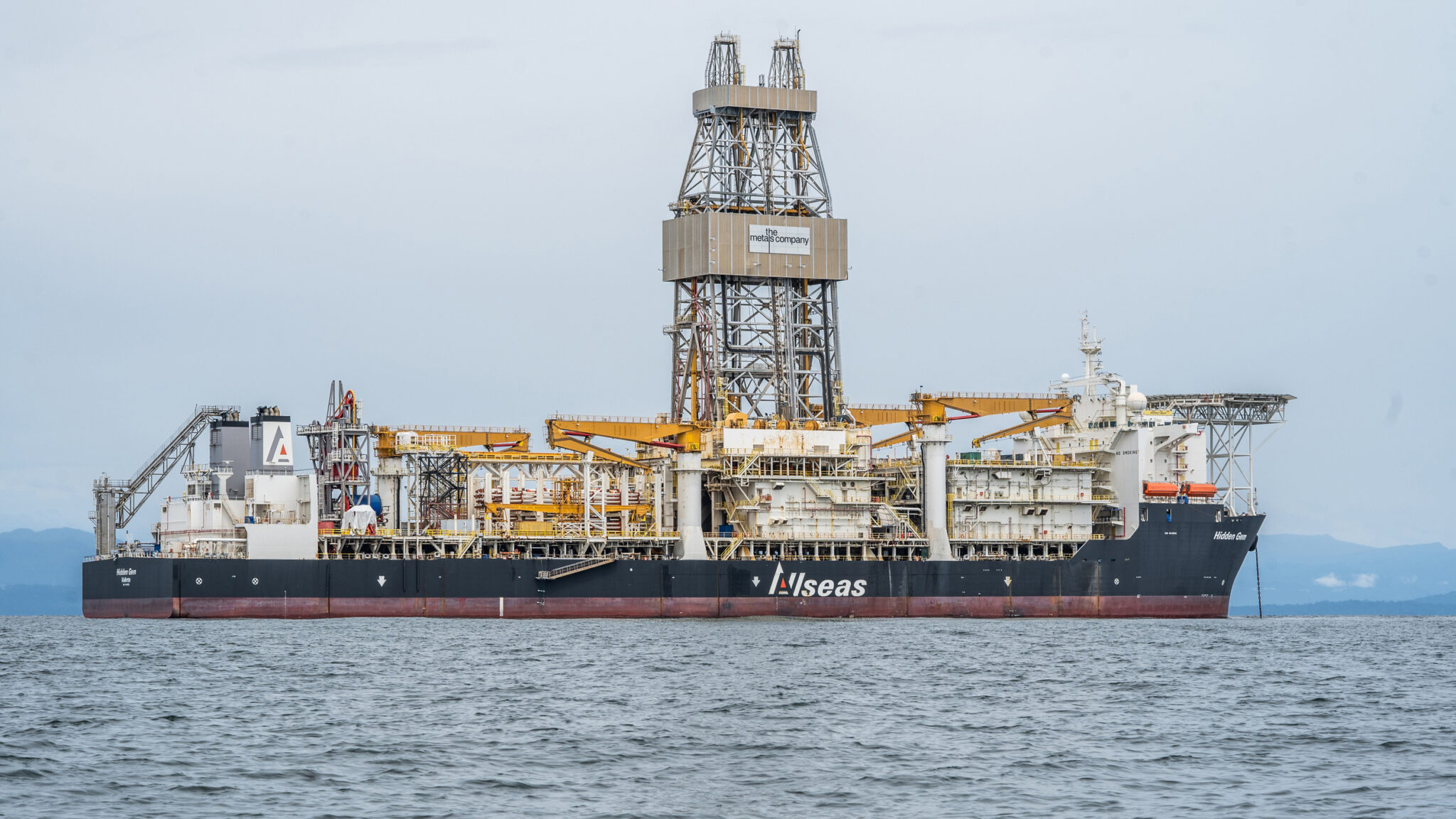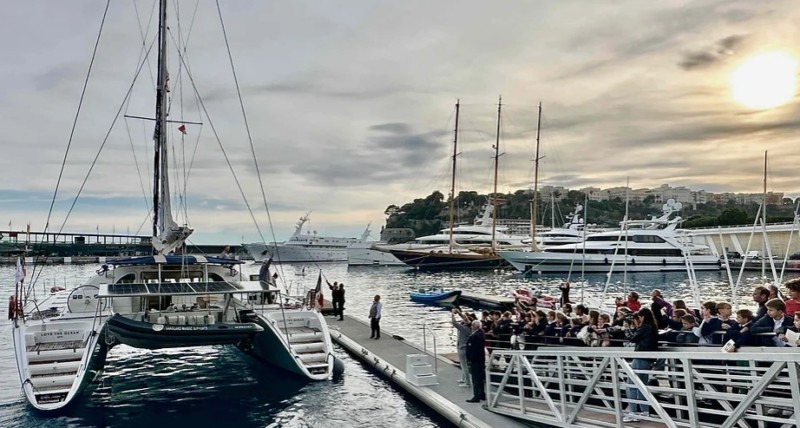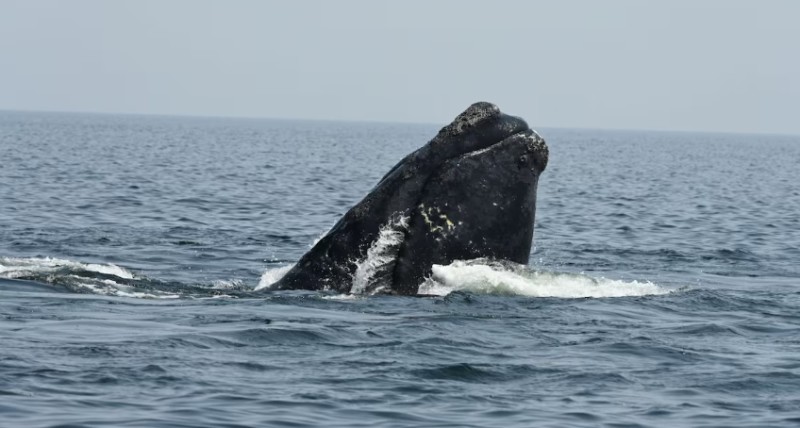A U.S. subsidiary of The Metals Co., based in Vancouver, has applied for permits to mine a deep-sea area in international waters under an executive order issued in April by President Donald Trump.
As delegates from member states of the International Seabed Authority (ISA) entered the third and final week of negotiations on deep-sea mining, they condemned an earlier decision by The Metals Co. to bypass the Authority’s protocols by applying for a mining permit in international waters under U.S. law.
“For years, one company — The Metals Co. — has pressured this authority to accelerate mining, promising wealth to small island developing states like mine and huge returns to investors,” said Surangel Whipps Jr., President of the Republic of Palau, last week at the ISA Assembly meeting in Kingston, Jamaica. “These promises have proven false.”
In April, The Metals Co. USA, a subsidiary of the Vancouver-based company, submitted applications to the National Oceanic and Atmospheric Administration (NOAA) for two exploration licenses and a commercial recovery permit to mine polymetallic nodules over two miles deep in the Clarion-Clipperton Zone, a vast ocean area in the Pacific between Hawaii and Mexico.
“The scale of the proposed open-pit mining in the Clarion-Clipperton Zone is unprecedented. The area in question is the size of India,” said Mr. Whipps. “Is this the legacy we want to leave our children? A lifeless seabed stretching over millions of square kilometers, with potential cascading impacts across the entire Pacific ecosystem and beyond?”
The Metals Co.’s bid to mine in international waters came just days after President Trump issued an executive order directing NOAA to accelerate review and issuance of seabed exploration licenses and commercial recovery permits. The order cited the Deep Seabed Hard Mineral Resources Act, a 1980 law enacted as a temporary mechanism to regulate deep-sea mining in international waters, said Duncan Currie, legal advisor to the Deep Sea Conservation Coalition, who attended the ISA meetings as an observer.
Under the United Nations Convention on the Law of the Sea, the ISA is the only body legally authorized to grant mining permits in ocean areas beyond national jurisdiction. An attempt to circumvent this and act unilaterally constitutes a violation of international law, said Currie.
The ISA cannot issue such permits until it finalizes and adopts a set of rules, regulations, and procedures known as the Mining Code, which would govern these activities to ensure protection of marine life and equitable sharing of benefits, with special consideration for developing countries.
The Law of the Sea explicitly states that the seabed area beyond national jurisdiction and its resources are the “common heritage of mankind,” which “cannot be claimed, appropriated or owned by any state or person.”
Negotiations in Kingston took place from July 7 to 25. The ISA Council — an elected group of 36 member states acting as ISA’s executive body — was expected to adopt the code there by the organization’s 2023 deadline.
The code has been in development for over a decade, and ISA has faced growing pressure from countries and companies like The Metals Co., eager to proceed with mining activities.
However, last week the Council announced it would not adopt the code and would refrain from setting a new deadline until further notice.
“In its current form, this Mining Code is completely incapable of ensuring effective protection of the marine environment,” said Emma Wilson, policy advisor to the Deep Sea Conservation Coalition, attending ISA meetings as an observer. She said it will likely take another 10 to 15 years to gather the scientific data needed to strengthen parts of the Mining Code.
Greenpeace activists flew giant ocean-themed kites with a banner reading “Protect the deep seabed” during the ISA Assembly meeting on July 16 in Kingston, Jamaica. Photo credit: Kinematix Studios/Greenpeace
Currently, there are too many unknowns about how such industrial activity might disrupt rare and fragile ecosystems, said Patricia Esquete, a deep-sea ecologist attending ISA meetings as an observer affiliated with the Deep Ocean Stewardship Initiative.
“Most species living there are unknown to science,” she said. Many of them live on or within the nodules targeted by mining companies.
Mining the deep seabed
For years, The Metals Co. (TMC) has claimed that extracting metals found in deep-sea mineral deposits — nickel, cobalt, copper, and manganese — is essential to combating the global climate crisis. In 2020, Gerard Barron, TMC’s Chairman and CEO, stated on the company’s website: “Ocean nodules are a unique resource to consider at a time when society urgently needs a viable solution to supply new virgin metals for the green transition.”
This framing has met strong resistance.
“They greenwashed the whole industry by saying it was for the good of humanity, that we had to mine the deep seabed to kickstart the green transition and supply the minerals needed to get off fossil fuels,” said Arlo Hemphill, project lead for Greenpeace USA’s Stop Deep Sea Mining campaign.
Hemphill said this narrative has shifted in recent years as battery manufacturers increasingly turn to lithium iron phosphate batteries, which are cheaper to produce.
A new Greenpeace USA report released last week claims the company no longer promotes deep-sea mining as a green solution but as a U.S. national security issue.
Greenpeace alleges TMC targets and influences military officials and veterans, Republican members of Congress, and the Department of Defense with the message that deep-sea mining is essential to reducing dependence on foreign adversaries like China for critical metal supplies.
In a post on X (formerly Twitter), Barron shared a 2024 video of himself saying: “I firmly believe that for the U.S. to outperform China in critical minerals, we must invest in domestic seabed mineral harvesting and refining capacity.”
Hemphill said this new narrative has nothing to do with fighting the climate crisis. “It’s 100% about competing with China, U.S. national security, and defense,” he said, adding it found a receptive audience in the Trump administration.
TMC did not respond to multiple requests for comment. But in April, Barron testified before the House Natural Resources Committee’s Oversight and Investigations Subcommittee in a hearing on “Exploring the potential of deep-sea mining to expand U.S. mineral production.”
“I have come to see this as the U.S. competitive advantage — deep-sea mining is a freedom of the high seas and America already has a robust regulatory regime to regulate U.S. citizens willing to pursue it. America now also has a President ready to make good use of that regime,” Barron said in his written testimony.
Trump’s executive order on deep-sea mining states: “The United States faces unprecedented economic and national security challenges to ensure a reliable supply of critical minerals, independent of foreign adversary control. Vast areas of seabed off our coasts contain critical minerals and energy resources. These resources are essential to strengthening our economy, securing our energy future, and reducing reliance on foreign suppliers of critical minerals.”
Opponents of deep-sea mining say this is untrue.
In an introductory letter to Greenpeace’s report, retired U.S. Army Major General Randy Manner wrote: “What we are witnessing is not a factual response to a military need, but a private-sector attempt to cloak a speculative commercial venture in the flag of national defense.”
Not only does the industry falsely claim to aid national security, he said, but it puts the U.S. at greater risk.
“The foundation of national security is not just weapons or minerals, it is global stability, the rule of law, and ecological resilience,” Manner wrote. “Exploiting the deep ocean in defiance of international consensus would degrade all three. It would erode U.S. credibility, break alliances, and set a dangerous precedent for unilateral resource exploitation.”
This could also lead to maritime disputes, he said in an interview.
“Whenever we claim part of the ocean as ours, someone will counterclaim it. That means you will have to put ships, navy, and aircraft over the area to defend that territory,” he said. Inevitably, he added, “there will be conflicts.”
To deter such actions, the ISA Council announced it will launch an investigation into contractors potentially violating the Law of the Sea by unilaterally pursuing deep-sea mining activities, which could include aiding any other party attempting to do so.
Although the Council did not explicitly name the contractors of interest, Currie of the Deep Sea Conservation Coalition said it was clear the investigation would focus on TMC subsidiaries Nauru Ocean Resources Inc. and Tonga Offshore Mining Ltd.




